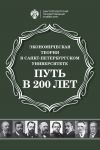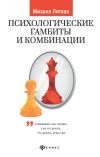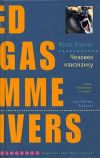Читать книгу "Экономические теории в пространстве и времени"

Автор книги: Коллектив авторов
Жанр: Экономика, Бизнес-Книги
Возрастные ограничения: 16+
сообщить о неприемлемом содержимом
Another significant undertaking by Rist was his Histoire des doctrines économiques (History of economic doctrines, first edition 1909) co-authored with Charles Gide. Rist certainly wrote the chapters on the more recent theories and schools (from Saint-Simon to state-socialism of the early twentieth-century: Rodbertus, Lassalle, and Marx as well) with a special interest in Anton Menger’ Neue Staatslehre5353
Rist wrote this new doctrine of state “authoritatively formulates a positive ideal of reform” (Rist, 1903, p. 907)
[Закрыть]. He got to know Carl’s works as well. Once more the two brothers faced each other. Although Rist lauded socialism, he pointed to danger in the pressure of the state over freedom and property. He wished for social laws to fight inequality and benefit workers, but foresaw a future far from glorious if that quest ended freedom. On the one hand, Rist praised Anton for social achievements like the first Austro-Hungarian Code of consumption rights, and on the other hand, aware of Carl’s analytics, he realized potential failures in an interventionist state. As a result, he questioned state interference in the economy: the state would fail discerning the behavior by individual agents, fail to acknowledge individual choice, while favoring their deterrents. Consequently, big structures (large cooperatives, banks “too big to fail” so to speak, federations of industries, like the German Konzerne, as well as private or state bureaucracies) would come to dominate. Rist saw well what Max Weber heralded as well: a hierarchy of norms and constraints (at the judiciary and administrative levels) would bring a future economic bureaucratic order, more appealing to statesmen than to free men. Even in the name of reform, one should keep trusting individual action (Rist, 1903, p. 911) against a threatening growing confidence in bureaucracy.
As he became more and more interested in economics, Rist grew critical of a holistic approach to the economy and favored methodological individualism. He partly joined in Carl’s criticisms against Anton and socialist ideal. Individual behavior enhances intentionality and is proper to fellow human beings while socialism tends to authoritarianism. Individualism in the marginalist doctrine thus displays both rigorous logic for a scientific body of economic knowledge and a moral as well as political basis. Paradoxically, it was Rist’s interest in socialism that gradually brought him to free-trade issues via the discovery of Marginalism. He then explored views by Walras and Pareto, besides Carl Menger. In his long essay in two instalments (1904 and 1907) on “optimistic economics and scientific economics”, Rist depicted, on the one hand, Marginalism as the analysis of trade, production and distribution, while, on the other hand, he delineated the perimeter of normative economics in a positivistic manner. He strictly severed Marginalism and laisser-faire, each being determined in its own right. Rist wrote that “free-competition realizes justice in wealth distribution, as well as the maximal possible welfare accessible through trade and production” (Rist, 1904, p. 645). In his eyes, to uphold Marginalism and to defend proprietors were very different things and he thus fought older French liberal economists (the likes of Bastiat, Leroy-Beaulieu) while endorsing Menger’s views5454
Menger himself had criticized those “advocates” (again, see Campagnolo, 2009) and above footnote 14.
[Закрыть]. In a free competition society, prices clear themselves on the market and this signal provides each and every agent with the maximal possible amount of satisfaction that can be gotten in the circumstances. This, plus “subjective utility”, Rist termed “ophelinity” and discard common “utility” (when understood only with an objective meaning).
Rist added that one should not be too optimistic, but rely on mechanisms and devices as Menger had displayed in his books. Trust in pure science bore no specific political contents, since to ascribe such contents to any theory, one needs to know more: essentially the initial endowments of the partners in trade. Justification of wealth differs from free-competition as a « notion agreed by convention” (“une conception conventionnelle”). This also meant that Rist was not simply espousing Menger’s views. He rather sought a path in the French context where economic analysis was influenced either by old-style liberalism or by newly-built (Walrasian) Marginalism. Using notions that mirrored some of the views by Menger, Rist did not endorse Austrian views, as his stand was finally opposite to the “spontaneity” view that Hayek inherited from Menger’s 1883 Investigations into the Method about institutions. Yet Rist acknowledged how Menger distinguished two types of institutions in Part III of the Investigations, on the one hand institutions that are born spontaneously (like money, markets, the state itself in a way) and on the other hand institutions born “pragmatically” through a covenant passed between agents (for instance, how rulers of the state get promoted, often).
In the second part of his 1907 essay, Rist dealt with wealth distribution, and stated that free competition tends to bring equity in the contribution/compensation of productive factors. Free competition acts thus like a device to fix prices of services “correctly”. Once again, initial endowments only are responsible for actual wealth distribution while marginalist economic analysis, if dynamic, describes inflows and outflows of individual income in terms of flux. The stock is heir to historical circumstances. Earlier property endowments can be explained through earlier use of force, skills and intelligence (or trickery). But later evolution follows rules set in competition economics. (Rist, 1907, p. 607): for Rist, the key is dynamics in an Austrian perspective. Inequality should be fought against, as it creates undeserved income but all this gets cleared not through less free activity, but through more free agency. Free competition provides chances wealth may change hands. It is granted that hazardous chance brings “undue” opportunities, but as selection happens, things get cleared. Rist writes:
Humans are not only content with benefitting, in various degrees, of income created by changes in economic equilibria, due to unconscious collective forces and causes. They mean more, they create changes, they voluntarily put themselves in the position of changing these equilibria […] The most perpetual active cause of economic disequilibrium is the agent as such: that agent ceaselessly causes new flux of income to appear and the simultaneous action of all these individuals who bear the same dream and the same worry and compete to reach the same goal, what is it else than a fight for life, in its most brutal and oft cynical manner, but also in its most productive and, yes, most beautiful side? (Rist, 1907, p. 608, our translation).
Creation (innovation) is the key factor – Rist almost heralds “creative destruction” in the sense later set by Joseph Schumpeter (with the notion of schöpferische Zerstörung). Evolutionism and Darwinian selection influence Rist, who speaks of “vital competition”, and the idea of spontaneous order emerges while it was previously discarded. In a nutshell, Rist’s reception of Mengerian themes is clear in the following: 1°. Mengerian Marginalism explains price theory, production and distribution, based upon flux of income whose real-typical laws relate to individual behavior – while only initial endowments explain original differences in wealth, not to subside in the long term; 2°. In socio-economics, “fight for life is the cause of countless conflicts” (Rist, 1907, p. 616) and thus, class warfare in the Marxist sense may be true, but it remains a simplistic view as society cannot be reduced to two classes; 3°. Wealth distribution varies along conventions and institutions and Marginalism details its mechanisms. Individual action is the basic typical relationship to base economy on. Whereas some of those themes are not specifically Mengerian, French readers like Rist read Menger through such lenses and actually read those works, which was to change as none translated Menger’s works.
First reception before WWI ended, followed by a long period of oblivion and rejection
Before WWI, attention was paid to Menger’s views in France. Then followed a long period of oblivion and rejection. That was true for most so-called “liberal” views of any kind. They were often simply rejected as the times called for the “masses” and “mass-leaders”. The Austrian school was almost forgotten, when some of its members did not themselves espouse such views (like Wieser in Das Gesetz der Macht). Most Austrians, true to their individualistic creed, had to flee. They did not come to France. This spans the Interwar, World War II and its aftermath into the Cold War well until the Sixties and Seventies. The 1980S was a turning point, with the fall of Eastern European planned economics. Only in the three more recent decades a revival of Austrian ideas reached France with, last but not least, the translation of the two major works by Menger well into the 21st century, more than a hundred years after Rist’s call. Why was the French so long immune to the posterity of the Austrian school? In a sense this helps understands French economic doctrines and bring into light what the recent work brought with translations long awaited for: a reassessment of Menger’s views.
The Interwar period and the “big sleep” of liberal economic thinking in France
While Rist claimed Marginalism helped clarify mechanisms of value and prices, his attempt to make Menger’s views accepted largely failed. French economists followed other paths, while Austrian ideas were received in other lands5555
See the display of the evolution of Austrian ideas in various countries in a special issue of the journal Austriaca on the theme “Austrian Schools of Economics” (edited in French by G. Campagnolo), 90, June 2020.
[Закрыть]. In their place of origin, in Vienna, Ludwig von Mises, holding radical subjectivist lines came after Eugen Böhm-Bawerk, who had set forth more objectivistic views, which indeed makes somehow difficult to reconcile various Austrian orientations (not to mention Wieser). Mises and Hayek saw themselves as Enkelschüler of Menger, while both heirs and critics to Böhm-Bawerk and Wieser5656
Böhm-Bawerk was very critical of Menger’s theory of capital and interest, for instance: this and more is debated in a collective volume (Campagnolo, 2008b) with an essay on Böhm-Bawerk (Magnan de Bornier 2008).
[Закрыть].
It is well-known that Austrians stress disequilibria, pointing to complex process with conclusions antagonistic to interventionism. In France, trust in the state is traditionally embedded in the perception of economics, dating back to Ancien Regime Colbertism and finding renewed approval in each regime. Austrians could see the end of the Habsburg Empire, and even the end of Austria with waves of revolutionaries from all extremes, until the final 1938 Anschluss. In the Third republic French economists stuck to their usual “pré carré”.
In a nutshell, the Interwar, between the collapse of Central and East-European Empires, and World War II, saw the heyday of nationalistic and “planist” views, with no room for liberal ideals. The exception is the gathering in Paris in 1938 of what would be known as the “Lippman Conference”. There, liberals sought to save their creed through innovative forms. There were French engineers discussing ideas brought by American journalist, Walter Lippmann, the author of the best-seller The Good Society. Louis Rougier was the organizer of the Congress and the only Frenchman member of the Vienna circle (around Moritz Schlick). His interest in Austrian epistemology and in economics helped defend a doctrinal liberalism. But when it came to Austrian views, epistemology and philosophy of science were the focus of interest, not economics, like at the Congress for the Philosophy of Science held at the Sorbonne in 19355757
Moreover, regarding Rougier, another issue would be his questionable activities during the war (he claimed to be a special envoy from Maréchal Pétain to Hitler, apparently associated himself with collaborationists).
[Закрыть]. The Lippmann Conference was mythified, yet its contents largely left in oblivion: its Acts were only retrieved and published recently5858
This task was meticulously completed by Serge Audier (2008).
[Закрыть].
Besides Rougier, economists interested in Austrian matters were the exception, like François Perroux (1903–1987), who did much to favor the reception of free economics distinct from French liberal nineteenth century views, favoring Marginalism and pointing to its distinctive traits (like subjectivism in the Mengerian approach). Perroux found more echo for other works, unrelated though5959
That impression may also be given by the fact that his archives, although officially open, are of a specially restricted access, beyond what is reasonable for scholarship. It is now up to Perroux specialists to dig them.
[Закрыть]. For most of the French Academia, such debates were regarded as what the French call “querelles d’Allemands” (abstruse disputes without end by German Professors and not worth a settlement). This is a major mistake and had first been illustrated with the “Dispute over the methods” (Methodenstreit) in economic metholodogy.
When merit was granted to Marginalism, it was often limited to its French (and Swiss) version with Walras and Pareto, some of the British school (Jevons, Francis Edgeworth, Alfred Marshall). French economists were often back to the genuine national tradition of economic-engineering, from early influence of École Polytechnique in the nineteenth century. The new times favored collective organization within firms and competitive schemes were less in need of individualist schemes (subjectivist along Austrian ideas) than economy-building through rational schemes. In a nutshell, the French were Cartesian. And Hayek would discern therein one trait of the “Abuse of Reason” program he intended to develop. State voluntarism is typical and approved by most who revived French traditions that had been buried with the Journal des économistes. Austrian ideas seem always to be coming as a novelty in France. While they evolve elsewhere, they find no hear or a mitigated success there.
Mises and Hayek had participated in the “Lippman Conference”, but their voices were subdued and when the term “neo-liberalism” was then first coined, it was with the meaning of mitigating liberalism with planning views, hence at the opposite end of its Austrian meaning that would be raised higher later on. The Austrian path to a free society sounded the most strange at the time and Mises demonstration that socialist calculation was impossible (1920) for theoretical reasons was rejected, even within the circle of free trade supporters. “Planning” was the key-word, including within such circles (in England, Keynesianism was its name). In France, Jacques Rueff was later to defend liberal policies while endorsing indicative planning after WWII. Not by coincidence Hayek chose to target socialists “of all parties” in his Road to Serfdom “war effort” since interventionism could take many aspects6060
This best-seller was regarded as an anti-communist pamphlet. Actually, it was rather a warning against how interventionist views had disoriented Germany and Austria and could endanger the West as well. A reason for this misunderstanding was the abstract provided by the Readers’ Digest of The Road to Serfdom, presented as staunchly anticommunist in a Cold War setting. Sales of the French translation remained low and the volume deserved Hayek an unrewarded and unrewarding fame with a large part of the intellectual community in France.
[Закрыть].
From Postwar to Cold War: Liberalism paired with Atlantism
After WWII, each and every scholar would have to determine his stand with respect to the USSR and Soviet-style planned-economy experiments. French governments of the Fifth Republic implemented quite efficiently (in its beginnings) a Commissariat général au plan, which had had some forerunners in previous wartime Vichy-state administrative circles. Freethinkers in France, who had previously debated for a century over religious freedom (laïcité), now discussed national and international political alignment or containment, and social issues as well (like Raymond Aron did), however still much less free trade and relevant economic policies. In France, ideas that had the Manchester school dominate the nineteenth century were doomed, and ideas making the US Marshall Plan palatable were as well. At stake was which kind of society the French wished and, strangely enough, economic debate was rather absent, although the 1944 program of the Conseil national de la résistance had hinted at a socialized economy. However French intellectuals of the 1950s and 1960s often mostly ignored the teachings of economics, while with the war, Austrian economists and thinkers had fled to many places and at last populated UK and especially US teaching institutions. Those migrants remained in the place of their new careers after the war – some could come back from faraway places to high academic positions, like the London School of Economics6161
Some fled as far as New Zealand (Austrian philosopher of science Karl Popper), Japan (German phenomenologist Karl Löwith) or Turkey (Ordoliberal economist Wilhelm Röpke), but most chose the UK and the US. The LSE, with Lionel Robbins, had welcomed Hayek since the 1930s and Popper would join in philosophy after the war (in turn invited by Hayek). In France, the latter’s major opus Logik der Forschung (published in Vienna in 1934) would await until 1973 its translation that, moreover, misread the title (Logique de la découverte scientifique, following the English version from which the French was translated!) The final French translation of Popper’s works happened in 2019 (!) with Popper’s youth writings on pedagogics (Apprentissage et découverte. Écrits de jeunesse, Vienne 1925-1935). Paris, Rue d’Ulm, “Versions françaises” (translated and edited by Gilles Campagnolo). Austrians ideas in social sciences almost entirely bypassed France.
[Закрыть].
As a consequence of exile, the Austrian school of economics changed. Generations that migrated due to the upheavals of European history, passed on ideas difficult to grasp to US-newly born generations. True, those waves of academic immigrants from Mitteleuropa shaped parts of the US Academia, but not all with the same success. Schumpeter would chair the American Economic Association, but Mises would just hold a seminar at New York University. Gottfried Haberler, Hayek (in Chicago), Karl Menger Junior (1902–1985, exiled in 1938 and finishing his career at Princeton) and other economists (like Oskar Morgenstern and Jansci von Neumann, among the founders of cybernetics and game theory) had to adapt to their new environment (down to details like changing first names like Jansci who became John Neumann). Some translated their voluminous previous works written in German or wrote new ones in English. Schumpeter at Harvard was stressing less his Austrian roots than his work on entrepreneurship (Campagnolo and Vivel, 2012) The Polanyi brothers (Michael and Karl, the author of The Great Transformation) would split ways, the latter as much a heir to Menger in his own way as Hayek, much more openly, claimed to be. Karl Polanyi worked on the 1923 edition of the Principles published by Karl Menger Junior. Most Austrian exiles chose North America, and indeed contributed to the arch-dominance of the US Academia over economics for the next half-century. None was in France – indeed not a safe haven.
But after the war, circumstances were no more favorable to their views in Europe and in France in particular. Strong influences were the Communist and Gaullist parties whose members favored national and/or protectionist views. The building of the European Economic Community, the project led by Jean Monnet, de Gasperi and Robert Schuman, in the 1950s and 1960s, as the most daring in terms of industrial recovery and the circulation of goods, industries, capital and workers. Later on, pro-free trade policies would been strongly pushed for, although Cold War, decolonization (and wars in that respect for France in Indochina and in Algeria) dominated the agenda of the Fourth Republic (1946–1958) and at the start of the Fifth Republic (born in 1958 from an attempted Coup related to the situation in Algiers). Among few exceptions, Rueff contributed to liberal monetarist policies when he would run the Ministry of economy after 1958. With the rise of leftist movements, economics was even less a focus of attention for as de Gaulle’s power gradually faded until May 1968. The spirit of the times was “indicative planning”, in line with French Colbertism pleasing the Gaullists, not infuriating the Communists. Any Austrian-style view was, at the least, “exotic”.
The wake-up call of Austrian did not come during the Cold War, even after diplomatic easing of Soviet politics and the only option of liberals was so-called “Atlantism”, which was the choice of Centrist parties only in France, both Communists and Gaullists being against. In intellectual circles, Sartre had proclaimed Marxism “the horizon of all socio-political thought”. Sartre’s intimate opponent since their École Normale years, Raymond Aron, was an Atlantist, but not an economist. Many French economists were Keynesians, endorsing it as another version of interventionism at odds with free-trade. The latter was more and more embodied in the construction of the European Union on the basis of the German “Marktsozialwirtschaft”, thus more from an Ordoliberal stand in the line of Wilhelm Röpke and Walter Eucken earlier on. There had been an alliance and a dispute between the Austrians and German Ordoliberals, from the 1938 Lippmann Conference through founding and guiding the Mount Pelerin Society over diverging economic governance views. Important in that regard was the fact that Austrian ideas came no longer from Europe but the United States and, so to speak, were not Mitteleuropa but Midwest (like Hayek in Chicago, for instance).
The Austrian revival actually came from the US from the 1970s on. Austrian influence in France would not follow in turn that detour before a series of key events: self-claimed “leftism” would culminate in violent actions in the 1970s and the Presidency of socialist leader François Mitterrand, from 1981 to 1995. After postwar France had been busy reconstructing its infrastructure and productive capacities along the “Trente glorieuses” years of continuous growth, oil-shocks and ensuing crises (1974 and 1979), times were little favorable to liberal policies6262
A parenthesis favorable to more liberal policies were under President Valéry Giscard d’Estaing and Prime Minister Raymond Barre, a former Professor of economics who had published works by Hayek in France.
[Закрыть]. From 1981 the government made of socialist and communist ministers was indeed at odds with the US of Ronald Reagan and the UK of Margaret Thatcher: Hayek was deemed a counsellor to the latter. Hayek received the so-called “Nobel Prize of economics” in 19746363
To be exact, the Prize “in the memory of Alfred Nobel given by the Bank of Sweden”. It was shared with Gunnar Myrdal, for works in the same field but in an opposite socio-economic and political direction.
[Закрыть]. The same year, the conference held at South Royalton was a pivotal moment in the evolution of the Austrian school in the US (Vaughn, 1994). However, actual programs in Austrian economics remained scarce in the Academia: NYU, where Mises taught to Israel Kirzner, Murray Rothbard and Ludwig Lachmann6464
Three branches of so-called “Neo-Austrian” economics are illustrated through these three leading figures. On Rothbard in French, see (Campagnolo, 2006).
[Закрыть]; George Mason, active in market studies; Johns Hopkins, depending on who held tenure. Among major large institutions, entrepreneur and leadership studies would follow, but little in France, although entrepreneurship gained momentum in the second half of the 1980s. The key moment was when Misesian views of the 1920s found echo with the 1989–1991 collapse of the Soviet Bloc. What had re-emerged in the 1970s reached Europe and France with a two-decade delay.
Внимание! Это не конец книги.
Если начало книги вам понравилось, то полную версию можно приобрести у нашего партнёра - распространителя легального контента. Поддержите автора!








































